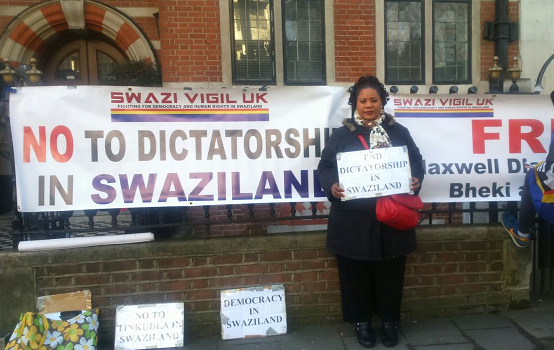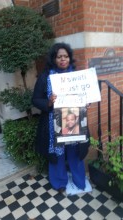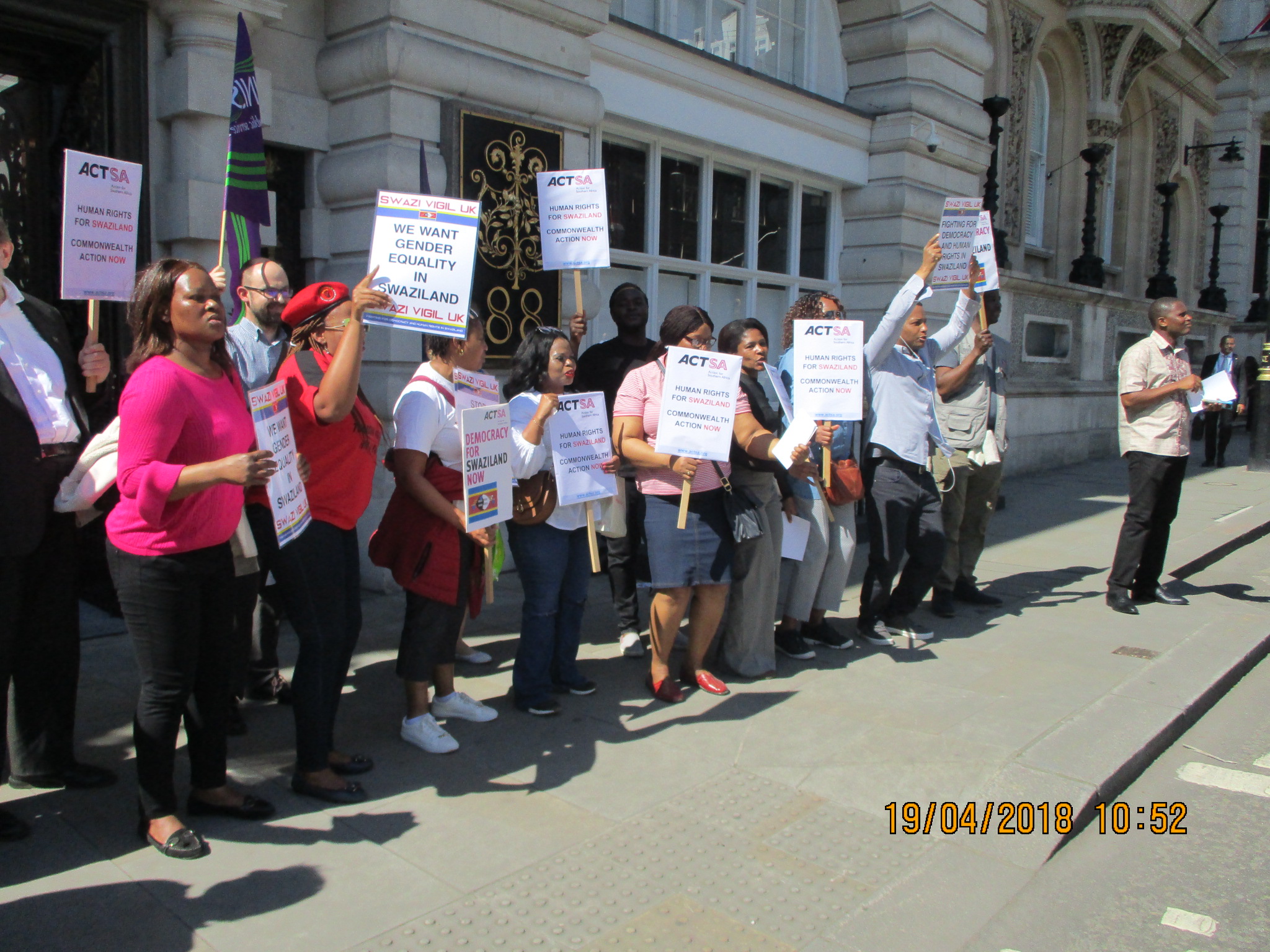Women in Swaziland are generally heavily discriminated against in contrast to what the Swaziland Constitution Act 2005 says [1]. In Swazi customary law, women have the status of minors and as such have restricted access to certain social, government, and economic entitlements. For example a woman cannot get a bank loan without the consent of her husband, and cannot lease land without a man (husband or a son who is of age).
The Swaziland conservatives and patriarchal culture "ushito" (he/she said so) condones the widespread violation of women's rights in Swaziland, even though Swaziland has signed the convention of the elimination of all forms of discrimination against women and Swaziland's constitution of 2005 (Section 28, sub-section 1 and 2) guarantees women the right to equal treatment with men (politically, economically and socially)[1].
The Constitution of the Kingdom of Swaziland Act 2005, as quoted below, guarantees the equal treatment of women with men and yet it practice, it is completely ignored by the government and authorities:
28. (1) Women have the right to equal treatment with men and that right shall include equal opportunities in political, economic and social activities.
(2) Subject to the availability of resources, the Government shall provide facilities and opportunities necessary to enhance the welfare of women to enable them to realise their full potential and advancement.
On the 11 March 2013 Swazi women rallied against Abuse and Inequality, in addition to the inferior legal standing of women, 1 in 3 females in Swaziland have experienced some form of sexual violence as a child, and nearly two thirds of 18 - 24 years old women have experienced some form of violence in their lifetime [2] says the IRIN report 2008. More than half of the sexual violence incidents committed against girls are not reported to anyone as they are not aware that the experience they had was abuse or they fear abandonment if they told anyone, because many men regard rape as a minor offence and many including the king have multiple sexual partners[2].
By: Bonisile Manyatsi
References:
[1]. The Constitution of the Kingdom of Swaziland Act 2005, Page 25, Section 28, Rights and Freedoms of Women.
[2]. IRIN Humanitarian News and Analysis - SWAZILAND: Every third woman sexually abused as a child, says report, http://www.irinnews.org/report/77685; Accessed 03 April 2015.
- Details
Important Notice
Swazi Vigil UK Meeting with Vincent Ncongwane (TUCOSWA)
Wednesday 18 March | 18:00 - 20:00
Vincent Ncongwane: Secretary General, Trade Union Congress of Swaziland TUCOSWA)
Location: Hotel Strand Continental, 143 Strand, London WC2R 1JA, England.
Nearest Tube: Temple Station, next to Kings College London.
Swaziland remains one of the few absolute monarchies in the world, but opposition voices are growing louder. The government and monarchy are coming under sustained pressure for democratic reform towards inclusive governance. Swaziland’s trade unions are among the most vocal actors and some have been deregistered and outlawed as a result of their protests.
Vincent Ncongwane, secretary general of the Trade Union Congress of Swaziland (TUCOSWA), will discuss the priorities and approach of the opposition movement in Swaziland, and highlight the role the Swazi Vigil UK can play in supporting democratic reform.
All Swazis please come and hear what is happening back home, so we can escalate our struggle to the next level!!!
To watch Vincent Ncongwane's interviews, click the link here: http://youtu.be/FTNlKuJPk0Q
Swazi Vigil UK Co-ordinator: Thobile Gwebu
- Details
The rule of law, access to affective remedies and protection of human rights continue to deteriorate as a consequence of the further undermining of judicial independence in Swaziland. As a Swazi citizen I am disheartened to see the violation of human rights continue to escalate and political and human rights activists arrested and given unfair trials for wanting political reform and change.
In July 2014 Bheki Makhubu, editor of the Nation news magazine, human rights activist lawyer Thulani Maseko were sentenced two years in prison for publishing articles raising concerns about judicial independence and political accountability in Swaziland. The warrant used to arrest them issued by the Swaziland Chief Justice Michael Ramodibedi, subverted the normal legal process, they were detained a long time without trial, refused access to lawyers while in the police cells and refused medical treatment. This is awful and ridiculous treatment from the Swazi Government to convict innocent men for freedom of speech. When sentencing the two men the judge criticized their "disgusting conduct" for running a "defiance campaign" against the administration of justice, and with respect to Thulani Maseko, for "pursuing regime change".
Political and human rights activists were also detained in several separate trials involving charges under the Suppression of Terrorism Act 2008 and the Sedition and Subversive Act 1938. Mario Masuku, human rights activist and leader of Peoples United Democratic Movement (PUDEMO) and youth leader Maxwell Dlamini were also charged with sedition and remanded in custody in connection with slogans they allegedly shouted at a 2014 May Day rally. The Crisis in the rule of law and judicial independence continue to deteriorate under the Swazi government and dictatorship of King Mswati III, the rights to freedom of expression,freedom of assembly, freedom of association continue to be violated and people who oppose the system get severly punished. Unfair trials resulted in imprisonment for reasons of opinion and conscience. This is the reason I joined Swazi Vigil UK to raise awareness of these gross human rights violation in Swaziland and the world needs to know. As a member of Swazi Vigil UK and a concerned Swazi Citizen I will continue to campaign against the Swazi government and the wasteful royal monarchy until the world joins in and helps us ... Viva Swazi Vigil UK Viva!!!
By: Sifiso Cynthia Dlamini
- Details
Page 19 of 34



 Protest photos on Flickr - Click
Protest photos on Flickr - Click